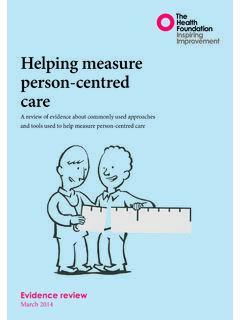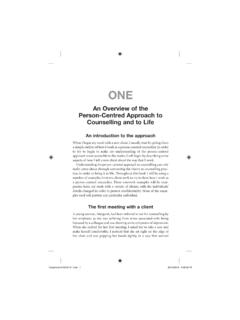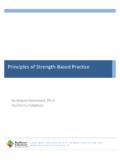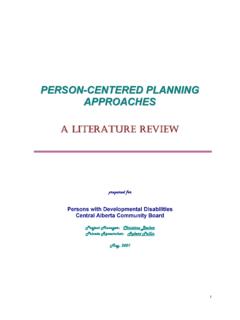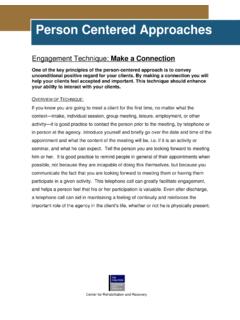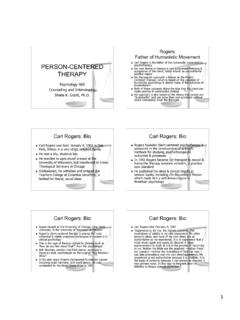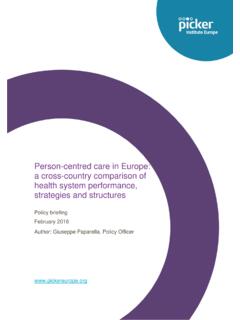Transcription of What Does “Person-Centered” Mean?
1 The use of Person-Centered Practices is a way of assuring that people with disabilities and older adults have the same rights and responsibilities as other people, including: Expressing what they want in their everyday lives Taking and/or maintaining control of their lives Making their own choices Connecting and contributing to the community Having opportunities to improve their lives and have joy, happiness, and purpose Seeing family and friends as often as they like Managing their own money and other resources Agencies are respecting you and your rights if they: Listen to you Work together with you and whomever else you choose (family, friends, neighbors) to support you in living the life you want Offer you choices about when, where, and how you get your supports and honor those choices Help you: Plan better for the present and the future Work and/or contribute in other ways to your community Be involved in groups, organizations, and social activities that interest you Learn new things Stay healthy and safe what does Person-Centered Mean?
2 For people who use services, their families, and supportersAgencies that use person-centered practices: Support staff members in making you the center of planning. Provide staff to you based on matching staff skills and personality to your needs. Make sure that staff members know their responsibilities (those things they have to do) and know where they can use judgment and creativity (where they can try different ways). They also know what is private and respect your privacy. Are flexible and creative in the ways they support you. Frequently ask, what is working, what is not working, and what do we still need to learn? Agencies that use person-centered practices may also help you develop a plan and review and update it on an ongoing basis so the plan changes with you. This plan may include: A positive description of you-- what people like and admire about you and what your talents and gifts are.
3 Who is important to you--this may include family, friends, and paid professionals. what is important to you--your likes, preferences and routines. what is important for you-- what you need to stay healthy and safe. what others need to know or do to support you. How you prefer to communicate. Characteristics of the people who best support you. An action plan that says who will do what by when. Evidence that the plan is updated as your needs and preferences change. Developed by: Partnership for People with Disabilities at Virginia Commonwealth University. VCU is an equal opportunity/affirmative action university providing access to education and employment without regard to age, race, color, national origin, gender, religion, sexual orientation, veteran s status, political affiliation, or disability.
